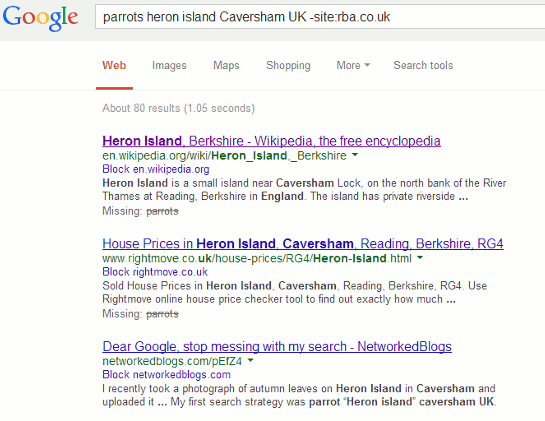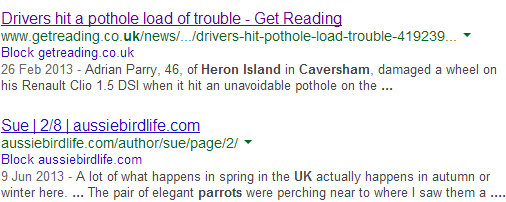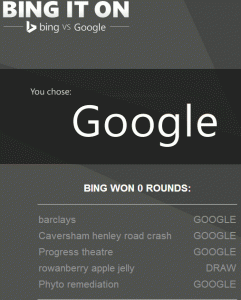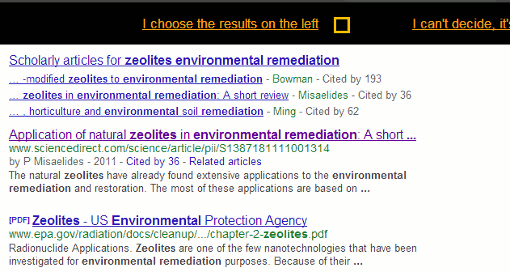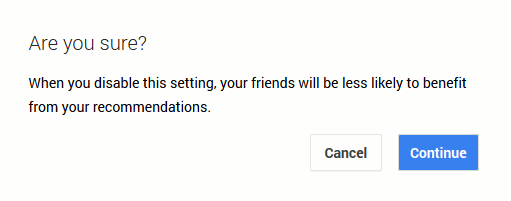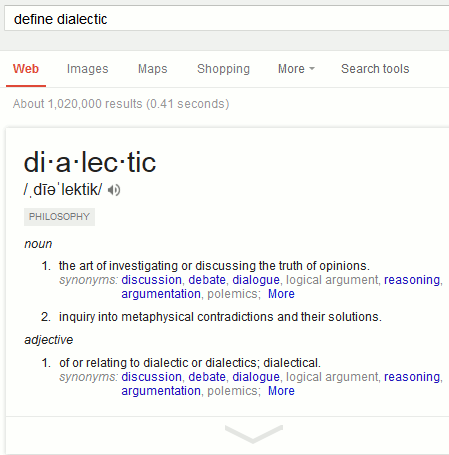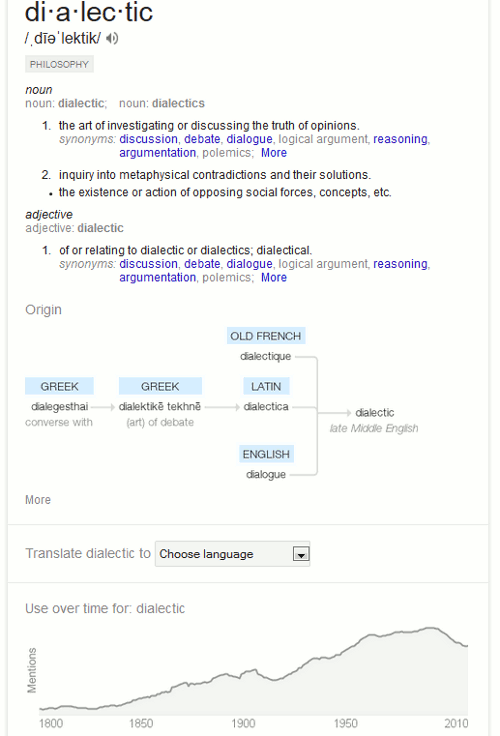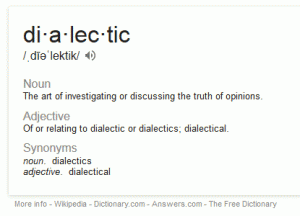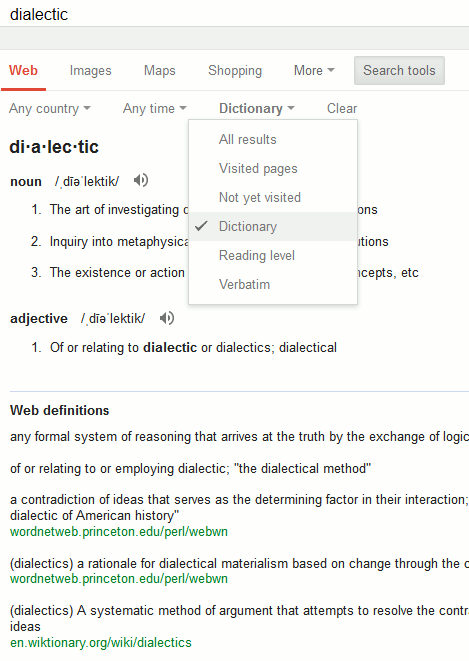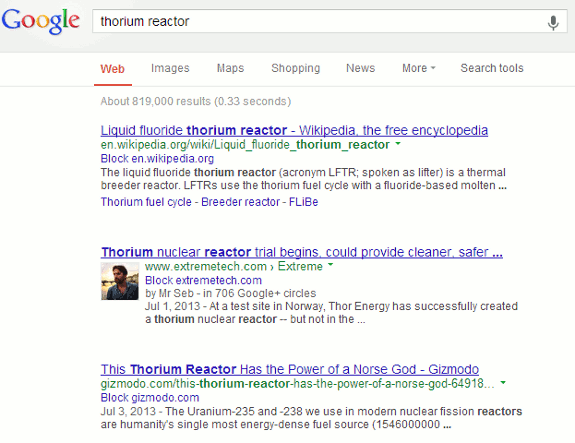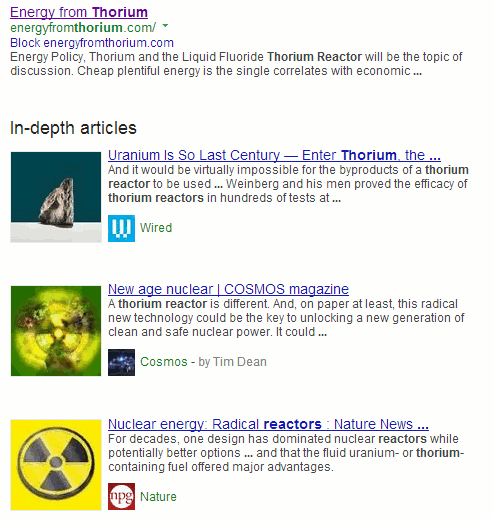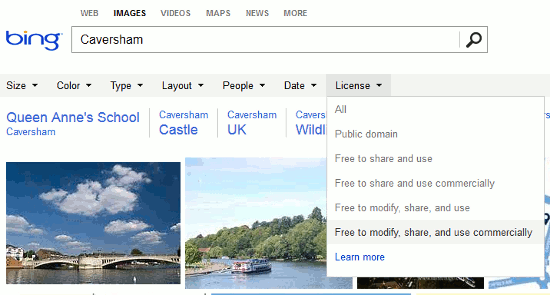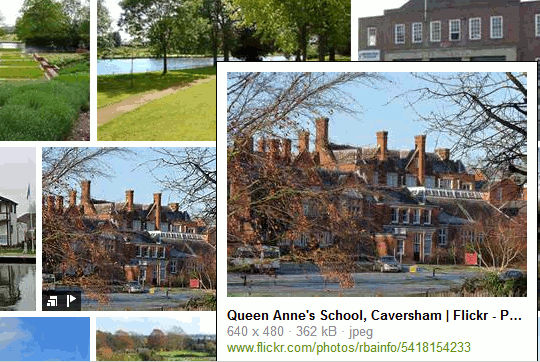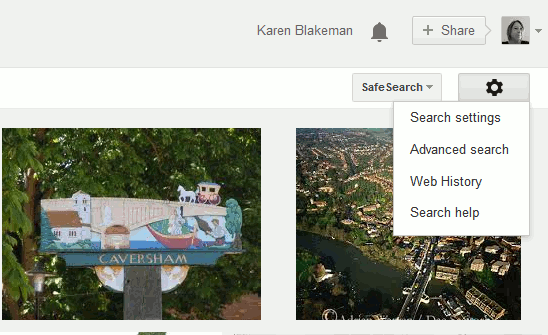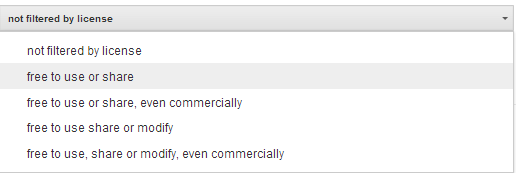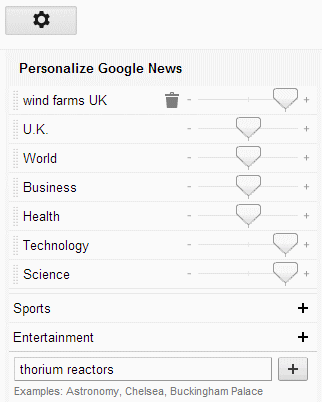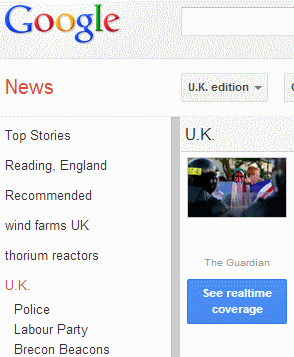Several weeks ago I noticed that Google was displaying the terms it had dropped from your search as ‘Missing’. Google started routinely ignoring selected search terms towards the end of 2011 (see http://www.rba.co.uk/wordpress/2011/11/08/dear-google-stop-messing-with-my-search/). Google’s response to the outcry from searchers was to introduce the Verbatim search option. However, there was no way of checking whether all of your terms appeared in a result other than viewing the whole page. Irritating, to say the least, if you found that the top 10 results did not include all of your keywords.
Fast forward to December 2013, and some people started seeing results lists that showed missing keywords as strikethroughs. I saw them for a few days and then, just as I was preparing a blog posting on the feature, they disappeared! I assumed that they were one of Google’s live experiments never to be seen again but it seems they are back. Two people contacted me today to say that they are seeing strikethroughs on missing terms. I ran my test searches again and, yes, I’m seeing them as well.
I ran the original search that prompted my November 2011 article (parrots heron island Caversham UK) and included -site:rba.co.uk in the strategy to exclude my original blog postings. Sure enough, the first two results were missing parrots and had “Missing parrots” underneath their entry in the list.
Remember, though, that Google automatically looks for variations on your search terms. Your original keyword may not be present in the results but a synonym may be, for example birds instead of parrots. I did find one entry in the top 10 results that seemed out of place. It was an article in the local newspaper. There was no ‘Missing….’ underneath the result but I could not find synonyms of parrots anywhere in the story. The closest was the surname of a person mentioned in the article – Parry – and I can only assume that this was Google truncating my ‘parrots’ keyword and looking for variations. But Parry was not highlighted in the entry in the results list as synonyms are. I shall look at the article in more detail to check that I have not missed a lurking parakeet or cockatoo!
I need to carry out more test searches to see how reliable this new feature is but, nevertheless, it is a welcome and useful addition to Google. If your top 10 results are showing strikethroughs then you know you have to either prefix the missing term with ‘intext:’ or use Verbatim for the whole search.
